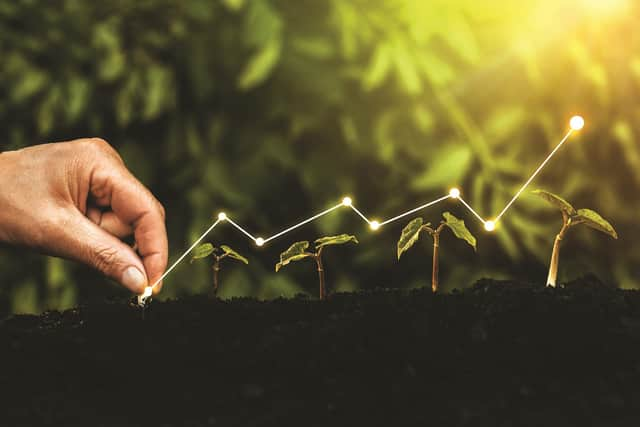AAB Wealth: growing trend for ethical investment and ESG


Friday, 5 June, 2020, marked World Environment Day, with World Oceans Day,and World Day to Combat Desertification and Drought all taking place in the same month.
But what can these international awareness days teach us about how we should be investing?
Environmental issues are increasingly big news, with Greta Thunberg, David Attenborough and global protest movement Extinction Rebellion, amongst others, continually pushing the topic of climate change and pollution into the headlines.


Increased awareness affects everything, from how we shop to how we recycle, and it has an impact on how we invest too. It was reported by FT Adviser back in 2018 that 52 per cent of millennial investors are already investing sustainably.
What is ESG investing?
ESG investing means basing your investment decisions on environmental, social, and governance factors. This could mean avoiding companies engaged in gambling, or the sale of tobacco or alcohol. Conversely, it might mean actively seeking out those businesses that are noted for being environmentally responsible.
Environmental investing means choosing where to place your money based on factors such as a company’s response to climate change, or its approach to renewable energy or pollution.
A business with an awareness of its environmental impact and an understanding of sustainability issues will be more likely to attract ESG investors.
However, it’s not just environmental issues that govern a company’s ESG credentials. Social factors will also be a consideration.
These could include the working conditions for its staff, its attitude to fair wages, and how a company situates itself within its community.
Governance concerns the internal practices of a company. Are shareholders elected democratically? Is the firm’s accounting transparent? Are its practices legal, as well as ethical?
The future of ESG
We all do our personal bit for the environment – recycling, turning off lights, cutting back on plastic – but we still invest for one main reason: returns.
ESG was once thought to mean putting your principals before your desire to make money, but that does not have to be the case.
A UK Investor Magazine report published in 2018 quoted predictions of a 173 per cent growth in such investments and a “market worth £48 billion by 2027”.
It is growth based on changing public perceptions around sustainability, but also on investment returns.
Global financial investment research firm Morningstar recently reported that “41 out of 56 of their ESG indexes have outperformed their non-ESG equivalents since inception”.
Elsewhere, sustainable banking firm Triodos confirmed that its Global Equities Impact Fund returned 78.3 per cent over the five years up to September 2019.
In observing World Environment Day, we acknowledge the responsibility we all have for the planet and each other.
Increased awareness of ESG issues has brought a rise in ethical investment. It’s an opportunity to place your money where your beliefs are, while also seeing potentially great returns.
Martyn Paterson is a financial planner at AAB Wealth. Find out more here.